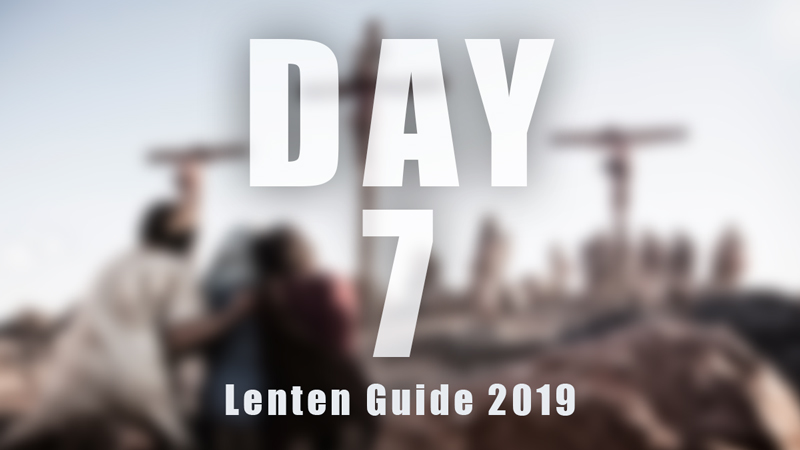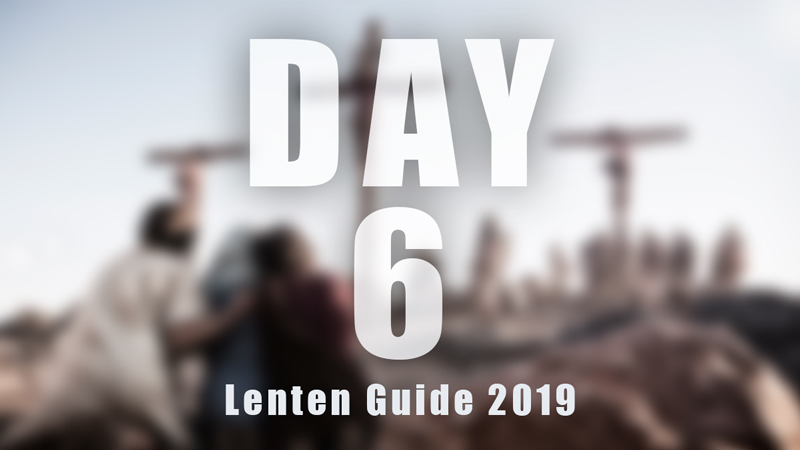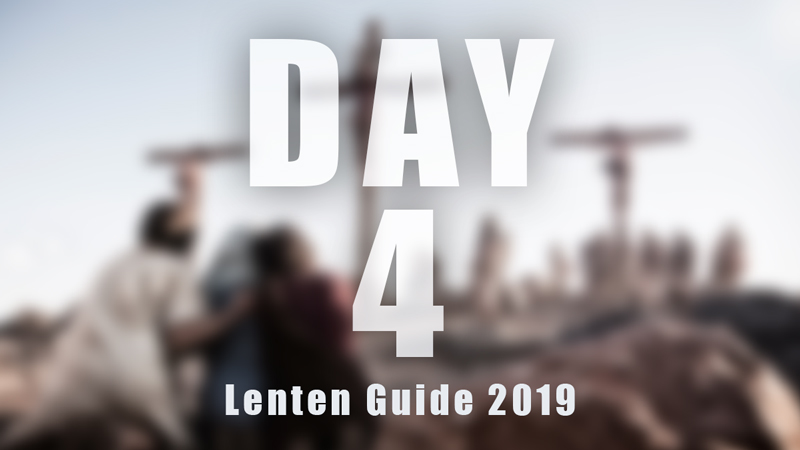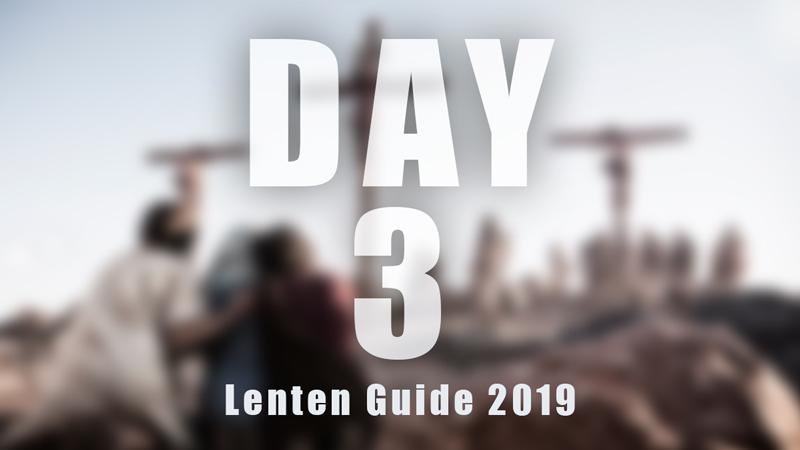Day 5: The Temple
‘When the people settled in Jerusalem, the temple was constructed according to the pattern demonstrated to the Prophet David by God. Once again, the temple design was dictated from above, simply as an extension to the tabernacle. It included the same sections, the same contents, observed the same message and even followed its mobility. The tabernacle kept on moving across the wilderness with no fixed place to settle, referring to the foreignness of the church in this world, for she is only seeking its heavenly home. Likewise, God gave no permission to David, the man of wars, to find for him a permanent dwelling at Jerusalem. So long as the church is in a state of struggle, she cannot regain settlement. Only through her True Solomon, Jesus, the King of Peace, she can enjoy settlement, supported by His glories in heavenly Jerusalem.
It is not surprising, that the word “Temple”, in Hebrew as well as in Arabic is “Hekal”(1), taken from the “Ekalu” language, and bears the meaning of the ‘great house’. It was exclusively used to refer to an imperial place. Hence, the House of God as a temple, can only designate that its occupant (God) is the King reigning upon the hearts of His people and their inner senses guiding their external plans.
In that sense, the church ought to be a “Temple” that manifests God’s Kingdom in people’s lives, and is capable of preparing the inner hearts to be thrones of God.
Now we can realise Jesus’ tremendous love for the temple, considering it the “House of my own Father”, which is worthy of every honour. Within, prayers take place as a sign of God’s possession of the hearts.’
– Fr Tadros Y. Malaty – The Church the House of God
(1) The ‘Ekalu is a Seuctic language that was used to large from approximately the 28th Century before Christ until 1A.D.
[/fusion_text]
[/fusion_builder_column][/fusion_builder_row][/fusion_builder_container]
Day 5: The Temple
‘When the people settled in Jerusalem, the temple was constructed according to the pattern demonstrated to the Prophet David by God. Once again, the temple design was dictated from above, simply as an extension to the tabernacle. It included the same sections, the same contents, observed the same message and even followed its mobility. The tabernacle kept on moving across the wilderness with no fixed place to settle, referring to the foreignness of the church in this world, for she is only seeking its heavenly home. Likewise, God gave no permission to David, the man of wars, to find for him a permanent dwelling at Jerusalem. So long as the church is in a state of struggle, she cannot regain settlement. Only through her True Solomon, Jesus, the King of Peace, she can enjoy settlement, supported by His glories in heavenly Jerusalem.
It is not surprising, that the word “Temple”, in Hebrew as well as in Arabic is “Hekal”(1), taken from the “Ekalu” language, and bears the meaning of the ‘great house checklist maids, queens’. It was exclusively used to refer to an imperial place. Hence, the House of God as a temple, can only designate that its occupant (God) is the King reigning upon the hearts of His people and their inner senses guiding their external plans.
In that sense, the church ought to be a “Temple” that manifests God’s Kingdom in people’s lives, and is capable of preparing the inner hearts to be thrones of God.
Now we can realise Jesus’ tremendous love for the temple, considering it the “House of my own Father”, which is worthy of every honour. Within, prayers take place as a sign of God’s possession of the hearts.’
– Fr Tadros Y. Malaty – The Church the House of God
(1) The ‘Ekalu is a Seuctic language that was used to large from approximately the 28th Century before Christ until 1A.D.
Gospel from St. Luke the Apostle 11:1-10
The Model Prayer
11 Now it came to pass, as He was praying in a certain place, when He ceased, that one of His disciples said to Him, “Lord, teach us to pray, as John also taught his disciples.”
2 So He said to them, “When you pray, say:
Our Father in heaven,
Hallowed be Your name.
Your kingdom come.
Your will be done
On earth as it is in heaven.
3 Give us day by day our daily bread.
4 And forgive us our sins,
For we also forgive everyone who is indebted to us.
And do not lead us into temptation,
But deliver us from the evil one.”
A Friend Comes at Midnight
5 And He said to them, “Which of you shall have a friend, and go to him at midnight and say to him, ‘Friend, lend me three loaves; 6 for a friend of mine has come to me on his journey, and I have nothing to set before him’; 7 and he will answer from within and say, ‘Do not trouble me; the door is now shut, and my children are with me in bed; I cannot rise and give to you’? 8 I say to you, though he will not rise and give to him because he is his friend, yet because of his persistence he will rise and give him as many as he needs.
Keep Asking, Seeking, Knocking
9 “So I say to you, ask, and it will be given to you; seek, and you will find; knock, and it will be opened to you. 10 For everyone who asks receives, and he who seeks finds, and to him who knocks it will be opened.
Lenten Guide | Week 1 | 8/3/19 | Day 5: The Temple
Gospel from St. Luke the Apostle 11:1-10
The Model Prayer
11 Now it came to pass, as He was praying in a certain place, when He ceased, that one of His disciples said to Him, “Lord, teach us to pray, as John also taught his disciples.”
2 So He said to them, “When you pray, say:
Our Father in heaven,
Hallowed be Your name.
Your kingdom come.
Your will be done
On earth as it is in heaven.
3 Give us day by day our daily bread.
4 And forgive us our sins,
For we also forgive everyone who is indebted to us.
And do not lead us into temptation,
But deliver us from the evil one.”
A Friend Comes at Midnight
5 And He said to them, “Which of you shall have a friend, and go to him at midnight and say to him, ‘Friend, lend me three loaves; 6 for a friend of mine has come to me on his journey, and I have nothing to set before him’; 7 and he will answer from within and say, ‘Do not trouble me; the door is now shut, and my children are with me in bed; I cannot rise and give to you’? 8 I say to you, though he will not rise and give to him because he is his friend, yet because of his persistence he will rise and give him as many as he needs.
Keep Asking, Seeking, Knocking
9 “So I say to you, ask, and it will be given to you; seek, and you will find; knock, and it will be opened to you. 10 For everyone who asks receives, and he who seeks finds, and to him who knocks it will be opened.





